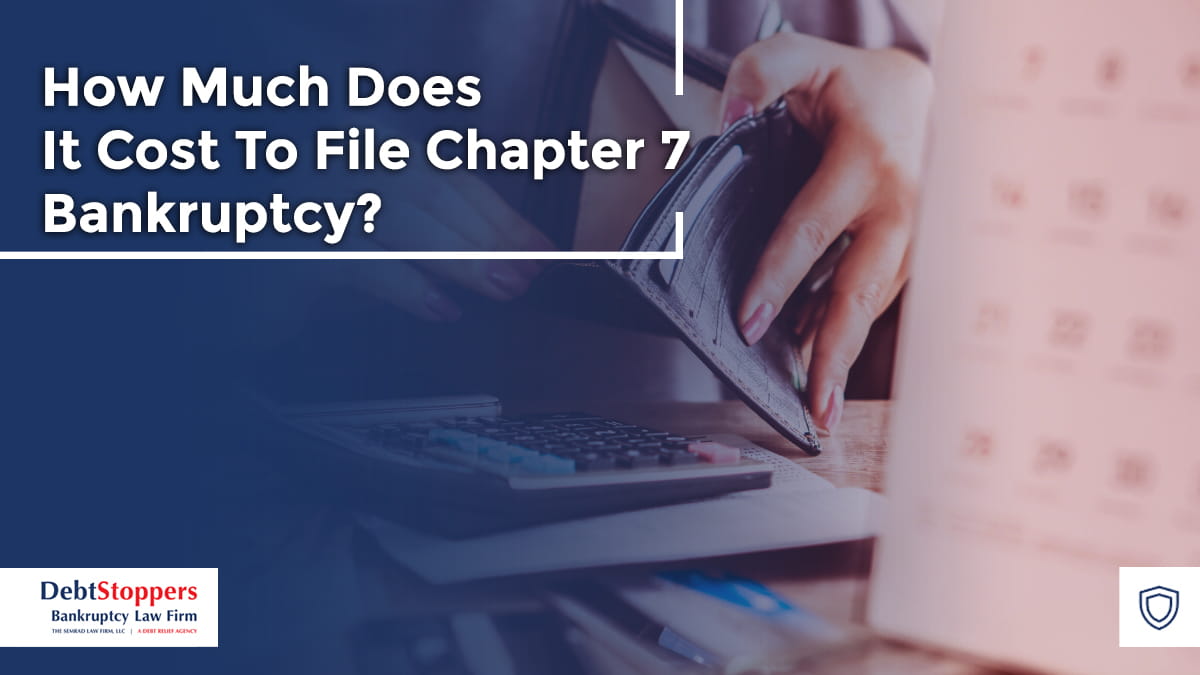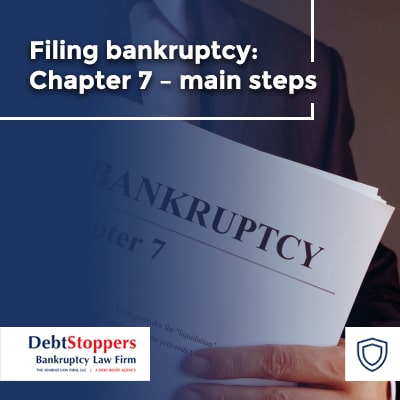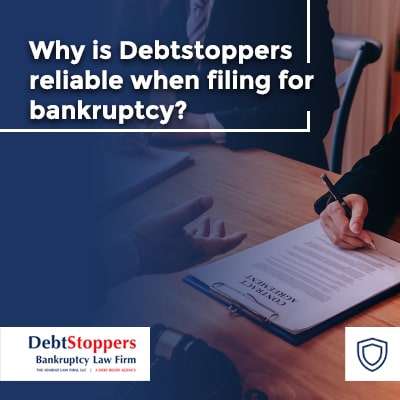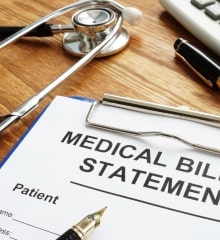How Much Does It Cost To File Chapter 7 Bankruptcy?

If you are considering Chapter 7 bankruptcy, one of your first concerns is likely the cost of filing. While Chapter 7 bankruptcy is designed to help people struggling with overwhelming debt, certain costs are associated with the process. Understanding these costs can help you make an informed decision and plan accordingly. In this blog, we will explain the various expenses involved in filing Chapter 7 bankruptcy, including court fees, attorney fees, and additional costs you may encounter.
What is Chapter 7 bankruptcy?
Chapter 7 bankruptcy is a legal process that helps individuals and businesses eliminate overwhelming debt and get a fresh financial start. Often referred to as liquidation bankruptcy, Chapter 7 allows eligible filers to discharge most unsecured debts, including credit card balances, medical bills, and personal loans, without the obligation to repay them. This process is one of the most common forms of bankruptcy due to its efficiency and ability to provide debt relief quickly.
To qualify, you must pass a means test, which compares your income to the median income in your state. If your income is below the threshold, you may be eligible to file. If it exceeds the limit, you may need to explore Chapter 13 bankruptcy, which involves a repayment plan. Simply put, if you are struggling with overwhelming debt, bankruptcy may provide the relief you need.

Filing bankruptcy: Chapter 7 – main steps
The Chapter 7 process begins with filing a bankruptcy petition with the court. Once filed, an automatic stay goes into effect, which immediately stops collection efforts, wage garnishments, repossessions, and lawsuits.
A court-appointed bankruptcy trustee will then review your financial situation and may sell certain non-exempt assets to repay creditors. However, most filers keep essential assets, such as a home, car, and personal belongings, due to state and federal bankruptcy exemptions.
Pre-filing preparation
Before filing for Chapter 7 bankruptcy, you must complete several preparatory steps to ensure a smooth process. First, you need to gather essential financial documents, including tax returns, pay stubs, bank statements, debt records, and a list of assets. This documentation will be required to assess your eligibility and complete the necessary paperwork.
Next, you must complete a credit counseling course from an approved agency within 180 days (about 6 months) before filing. This course is mandatory and helps determine whether bankruptcy is the right option for you. Additionally, if you wish to file under Chapter 7, you must pass the means test to ensure you qualify.
Completing and submitting the bankruptcy petition
Once you have gathered your financial documents and completed credit counseling, the next step is filling out the bankruptcy petition and related forms. These documents provide detailed information about your finances, debts, income, assets, and expenses. Given the complexity of bankruptcy paperwork, many people seek legal assistance to ensure accuracy and compliance with federal and state laws.
After completing the necessary forms, you must file your bankruptcy petition with the appropriate US Bankruptcy Court. You will also need to pay the filing fee or request an installment plan or fee waiver if you qualify. Once your petition is submitted, an automatic stay goes into effect, which prevents creditors from taking further collection actions against you, such as wage garnishments, repossessions, or lawsuits.
How much does it cost to file Chapter 7 bankruptcy?
To file for Chapter 7 bankruptcy, you must pay a court filing fee of $338 as of 2025. This fee is required by the US Bankruptcy Court and must be paid when submitting your bankruptcy petition. If you cannot afford to pay the full amount upfront, you may be allowed to pay the fee in installments. In some cases, people with no or extremely low income may qualify for a fee waiver, which eliminates the court filing fee.
Beyond court and attorney fees, there are a few other expenses you should anticipate including the fees for credit counseling and debtor education courses. Before filing, you must complete a credit counseling course and after filing you must complete a debtor education course. You may also need to obtain copies of financial documents, credit reports, or additional legal documents, which typically require you to pay a small fee.
When should you consult with a Chapter 7 attorney?
While it is possible to file for Chapter 7 bankruptcy without an attorney, it is not recommended due to the complexity of the bankruptcy process. Hiring an experienced Chapter 7 attorney significantly increases your chances of a successful discharge of debts while ensuring all legal requirements are met. Attorney fees for Chapter 7 bankruptcy can vary based on location, case complexity, and the attorney’s experience. Some attorneys will also front the money to file a bankruptcy case or will offer flexible payment plans.

Why is Debtstoppers reliable when filing for bankruptcy?
Choosing the right law firm to guide you through the bankruptcy process is crucial. For more than two decades, DebtStoppers has built a strong reputation as a trusted and experienced bankruptcy law firm, helping thousands of people regain control of their finances.
DebtStoppers specializes in bankruptcy law, meaning their attorneys have extensive knowledge and experience in navigating even the most complex cases. Whether you're dealing with overwhelming credit card debt, medical bills, or wage garnishment, the experienced attorneys at DebtStoppers understand how to tailor legal solutions to fit your specific financial situation.
DebtStoppers takes a personalized approach to each case. From the initial free consultation to the final discharge of debt, clients receive one-on-one attention and expert legal advice to help them make the best decision for their situation.
Additionally, DebtStoppers offers flexible payment plans and even $0-down bankruptcy filing options, making legal assistance accessible to everyone. Our goal is to provide quality legal representation without adding additional financial strain.
With more than 20 years of experience and countless positive client testimonials, DebtStoppers has a proven track record that speaks for itself. Our expert attorneys understand the bankruptcy process inside and out and work diligently to maximize benefits for clients.
DebtStoppers provides a range of debt relief solutions, including financial counseling, assistance with stopping foreclosures, and legal strategies to protect assets. Our commitment to long-term financial success ensures our clients can move forward with confidence after their bankruptcy case is resolved.
If you are struggling with overwhelming debt and considering bankruptcy, contact DebtStoppers to schedule a free consultation and take the first step to making life affordable.





